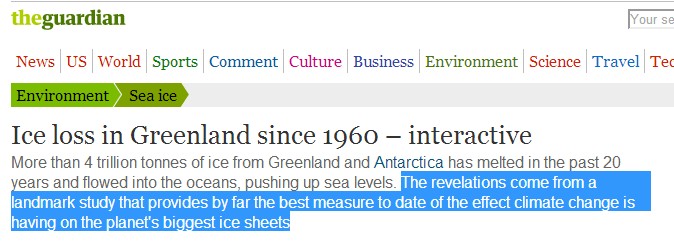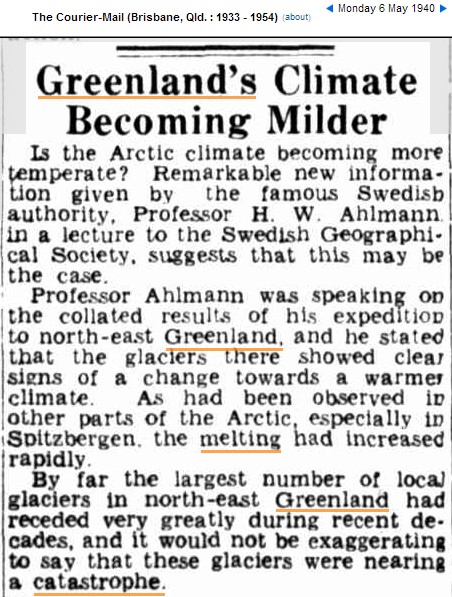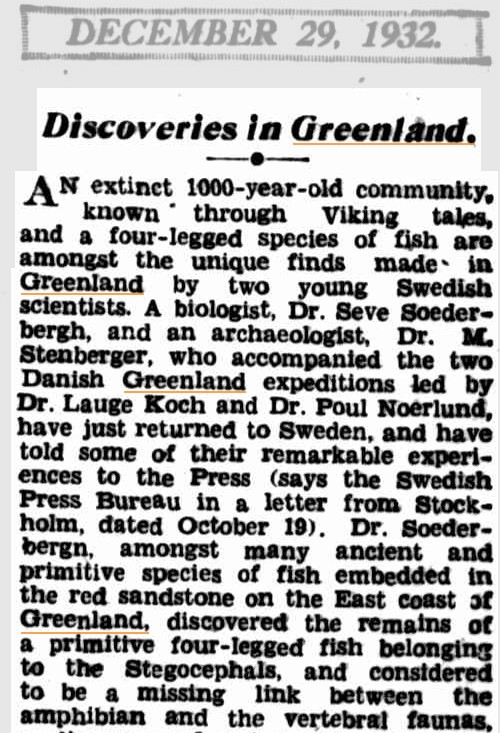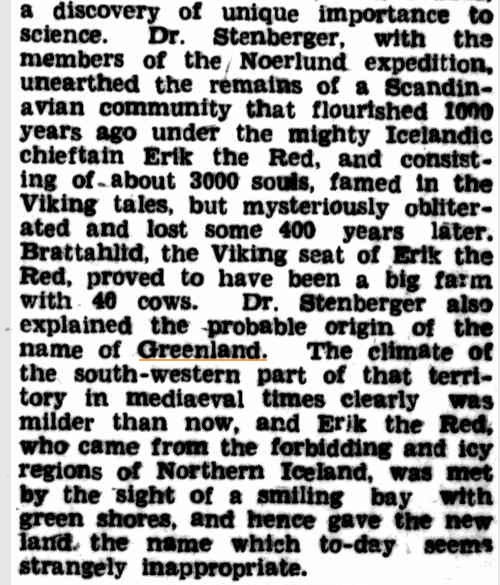Part 1 : Pick a recent start date for analyzing a trend, and then blame it on CO2.
Ice loss in Greenland since 1960 – interactive | Environment | guardian.co.uk
Part 2 : Ignore critical information from prior to your start date :
May 6, 1940
By far the largest number of local glaciers in northeast Greenland had receded very greatly during recent decades, and it would not be exaggerating to say that these glaciers were nearing a catastrophe.
06 May 1940 – Greenland’s Climate Becoming Milder
Dr. Stenberger, with the members of theNoerlund. expedition, unearthed the remains of a Scandinavian community that flourished 1000 years ago under the mighty Icelandic chieftain Erik the Red, and consisting of-about 3000 souls, famed in the Viking tales, but mysteriously obliterated and lost some 400 years later. Brattahlid, the Viking seat of Erik the Red, proved to have been a big farm with 40 cows. Dr. Stenberger also explained the -probable origin of the name of Greenland. The climate of the. southwestern part of that territory in medieval times clearly was milder than now, and Erjk the Red; who- came from the forbidding and icy regions of Northern Iceland, was met by the ‘sight of a smiling bay with green shores, and hence gave the new land, the name which to-day seems strangely inappropriate.






The perfect land for all the Green-freaks to emigrate to.
“if you can make it there, you can make it anywhere (without fossil fuels).”
Bon Voyage. Adios. Goodbye.
They never mention how much is being deposited back upon the ice cap, in the form of new ice and snow…
That information is not relevant and only detracts from the “Message”! 😉